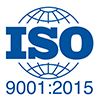Ανοσοθεραπεία… Επιστήμονες ανέπτυξαν μια πρωτοποριακή προσέγγιση που βοηθά τα «γηρασμένα» κύτταρα του εντέρου να επανενεργοποιήσουν τους φυσικούς μηχανισμούς επούλωσης. Χρησιμοποιώντας θεραπεία CAR T-κυττάρων, μια ανοσοθεραπεία γνωστή κυρίως από τη μάχη κατά του καρκίνου, κατάφεραν να απομακρύνουν κύτταρα που εμποδίζουν την αναγέννηση των ιστών, επιτρέποντας στο έντερο να επιδιορθώνεται πιο γρήγορα και να λειτουργεί αποτελεσματικότερα.
Όταν το έντερο «γηράσκει»
Καθώς μεγαλώνουμε, πολλοί παρατηρούμε ότι τρόφιμα που κάποτε χωνεύαμε χωρίς δυσκολία αρχίζουν να προκαλούν ενόχληση. Ένας βασικός λόγος είναι η φθορά του εντερικού επιθηλίου, του εξαιρετικά λεπτού στρώματος κυττάρων που καλύπτει το εσωτερικό του εντέρου και παίζει καθοριστικό ρόλο στην πέψη και στη συνολική εντερική υγεία.
Υπό φυσιολογικές συνθήκες, το εντερικό επιθήλιο ανανεώνεται πλήρως κάθε τρεις έως πέντε ημέρες. Ωστόσο, η γήρανση ή θεραπείες όπως η ακτινοβολία για καρκίνο μπορούν να διαταράξουν αυτή την ταχεία ανανέωση, επιβραδύνοντάς την ή ακόμη και σταματώντας την. Όταν ο μηχανισμός αυτός απορρυθμίζεται, αυξάνεται η φλεγμονή και ενδέχεται να εμφανιστούν προβλήματα όπως το σύνδρομο διαρρέοντος εντέρου.
Ανοσοθεραπεία: Μια νέα στρατηγική για την επιδιόρθωση του εντέρου
Ερευνητική ομάδα στο Cold Spring Harbor Laboratory (CSHL) ανέπτυξε μια καινοτόμο μέθοδο για να ενισχύσει την επούλωση και την κυτταρική αναγέννηση στο έντερο. Η προσέγγιση βασίζεται στη θεραπεία CAR T-κυττάρων, μια μορφή ανοσοθεραπείας που έχει ήδη αποδείξει την αποτελεσματικότητά της σε συγκεκριμένες μορφές καρκίνου.
Οι επιστήμονες εκτιμούν ότι στο μέλλον αυτή η στρατηγική θα μπορούσε να ανοίξει τον δρόμο για κλινικές δοκιμές που θα στοχεύουν στη βελτίωση της εντερικής λειτουργίας σε άτομα με ηλικιακή έκπτωση.
Η σημασία της απομάκρυνσης των γηρασμένων κυττάρων
Τα νέα ευρήματα βασίζονται σε προηγούμενη έρευνα της επίκουρης καθηγήτριας Corina Amor Vegas, η οποία μελετά την κυτταρική γήρανση. Με την πάροδο του χρόνου, τα γηρασμένα κύτταρα συσσωρεύονται στους ιστούς. Παρότι δεν διαιρούνται πλέον, δεν απομακρύνονται από τον οργανισμό, με αποτέλεσμα να παρεμποδίζουν τη φυσιολογική λειτουργία των οργάνων.
Η παρουσία αυτών των κυττάρων έχει συνδεθεί με πολλές ασθένειες που σχετίζονται με την ηλικία, όπως ο διαβήτης και η άνοια.
Σε παλαιότερες μελέτες, η ομάδα της Amor Vegas είχε αναπτύξει ειδικά ανοσοκύτταρα, γνωστά ως anti-uPAR CAR T cells, τα οποία αφαιρούσαν επιλεκτικά γηρασμένα κύτταρα σε πειραματόζωα, οδηγώντας σε αισθητή βελτίωση της μεταβολικής υγείας.
Δοκιμές σε νεαρά και ηλικιωμένα ποντίκια
Στη νέα μελέτη, οι ερευνητές διερεύνησαν αν η απομάκρυνση των γηρασμένων κυττάρων θα μπορούσε να επαναφέρει την ικανότητα του εντέρου να αυτοεπιδιορθώνεται. Η Amor Vegas συνεργάστηκε με τον επίκουρο καθηγητή Semir Beyaz και τον μεταπτυχιακό φοιτητή Onur Eskiocak, χορηγώντας CAR T-κύτταρα απευθείας στο έντερο τόσο νεαρών όσο και ηλικιωμένων ποντικιών.
Τα αποτελέσματα ήταν εντυπωσιακά και στις δύο ομάδες. Τα πειραματόζωα παρουσίασαν καλύτερη απορρόφηση θρεπτικών συστατικών, σημαντικά μειωμένη φλεγμονή και πολύ ταχύτερη αναγέννηση του εντερικού επιθηλίου μετά από τραυματισμό.
Ανοσοθερπεία & Ανάρρωση από βλάβες ακτινοβολίας με μία μόνο δόση
Το σύνδρομο διαρρέοντος εντέρου εμφανίζεται συχνά σε ασθενείς που υποβάλλονται σε ακτινοθεραπεία στην κοιλιακή ή πυελική περιοχή. Για να προσομοιώσουν αυτή τη βλάβη, οι ερευνητές εξέθεσαν ποντίκια σε ακτινοβολία που κατέστρεψε τα επιθηλιακά κύτταρα του εντέρου.
Τα ζώα που έλαβαν θεραπεία με CAR T-κύτταρα ανάρρωσαν σαφώς πιο αποτελεσματικά από εκείνα που δεν έλαβαν την αγωγή. Το πιο εντυπωσιακό εύρημα ήταν ότι μία μόνο δόση της θεραπείας αρκούσε για να διατηρηθεί η βελτιωμένη εντερική λειτουργία για τουλάχιστον έναν χρόνο.
Πηγή: dailypharmanews.gr




